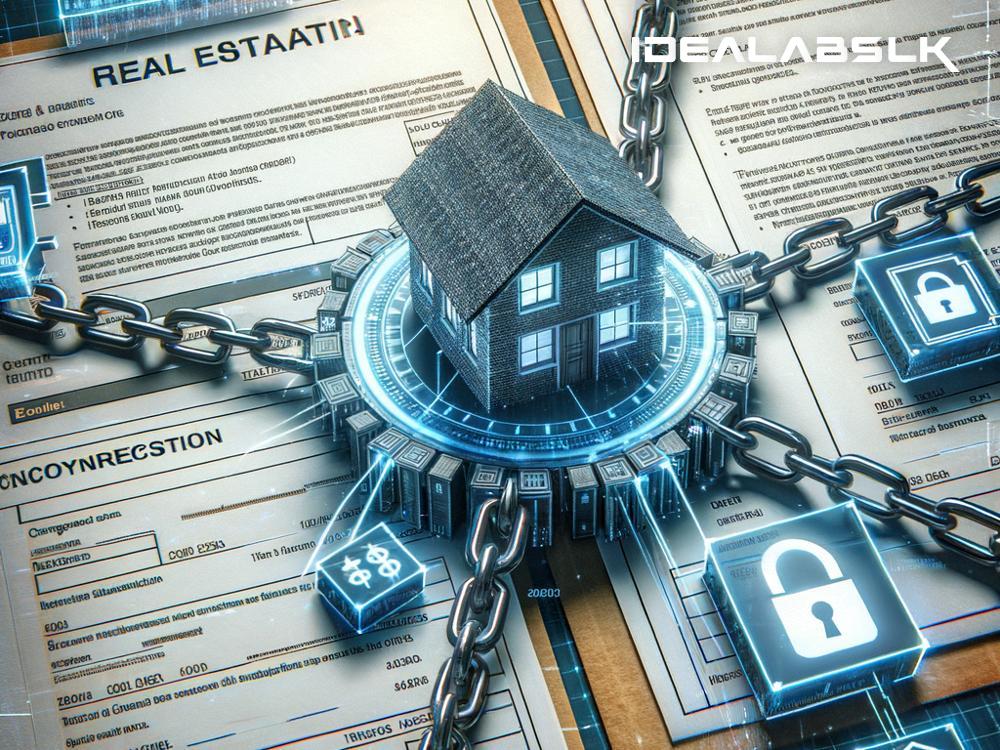Using Blockchain to Prevent Real Estate Fraud
In the world of buying and selling properties, the excitement of securing a new home or investment can often be overshadowed by the fear of falling victim to fraud. Real estate fraud is a serious issue that affects many people, leading to loss of money, time, and trust. But what if there was a way to make real estate transactions more secure, transparent, and trustworthy? Enter blockchain technology, a groundbreaking solution that has the potential to drastically reduce, if not eliminate, real estate fraud. Let's dive into how this is possible.
What is Blockchain?
Before we understand how blockchain can revolutionize real estate, it's essential to grasp what it is. In simple terms, blockchain is a digital ledger that is secure, transparent, and unchangeable. It records transactions across a network of computers in a way that prevents any alterations once the data is recorded. This feature makes it an excellent tool for creating trust and security in transactions that traditionally are prone to fraud and disputes, like those in real estate.
The Problem with Traditional Real Estate Transactions
The traditional process of buying and selling properties involves a long chain of paperwork, middlemen, and complex legal procedures. There are many stages where things can go wrong, from forged documents to fraudulent ownership claims. These vulnerabilities not only put buyers and sellers at risk but also add unnecessary costs and delays to transactions.
How Blockchain Can Help
1. Transparent Transactions
Blockchain's transparent nature ensures that all parties involved in the transaction can view and verify the data. When a property is bought or sold, the transaction details are recorded on the blockchain for everyone to see. This transparency helps build trust among parties and reduces the chances of fraudulent activities.
2. Immutable Records
One of the core features of blockchain is immutability, meaning once a transaction is recorded, it cannot be altered or deleted. This characteristic is incredibly beneficial in real estate, where the history of property transactions needs to be accurate and unchangeable for legal and ownership reasons.
3. Smart Contracts
Smart contracts are self-executing contracts with the terms of the agreement directly written into code. These digital contracts can automate and streamline the real estate transaction process, reducing the need for intermediaries and minimizing the risk of fraud. For instance, a smart contract can automatically transfer property ownership once certain conditions are met, without the need for manual intervention.
4. Eliminating Intermediaries
Blockchain technology can significantly reduce the dependence on intermediaries such as lawyers, banks, and brokers. While these professionals play essential roles in traditional transactions, their involvement can sometimes introduce risks and additional costs. By using blockchain, many of their functions can be automated and made more secure, potentially saving time and money for everyone involved.
5. Enhancing Security
The decentralized nature of blockchain, coupled with robust encryption methods, makes it an incredibly secure way of conducting transactions. It is nearly impossible for hackers to alter the blockchain, making real estate transactions and records safe from tampering and fraud.
Real-world Applications
Several countries and companies are exploring blockchain's potential in real estate. For example, some governments are considering transitioning their land registry databases to blockchain to secure property records and improve the efficiency of transactions. Real estate startups are also creating blockchain-based platforms that allow buyers and sellers to connect directly, eliminating fraud risks associated with counterfeit listings and fraudulent intermediaries.
Final Thoughts
While blockchain technology offers promising solutions to reduce real estate fraud, it's not a magic bullet. Successful implementation requires regulatory support, industry adoption, and public awareness. However, as more people understand and trust this technology, blockchain has the potential to transform real estate transactions into a safer, faster, and more cost-effective process for everyone involved.
In summary, the future of real estate lies in adopting innovative technologies like blockchain that promise to protect buyers and sellers and ensure the integrity of property transactions. As we move forward, the dream of a fraud-free real estate market seems not just hopeful but entirely achievable.

